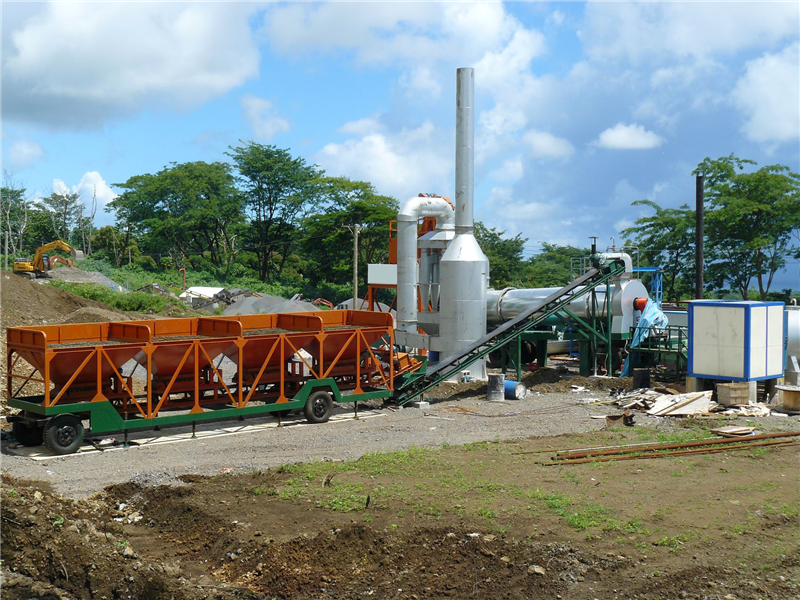Mar. 21, 2024
A mobile asphalt plant is a portable facility used for producing asphalt, which is a commonly used material in road construction. Unlike stationary asphalt plants, which are fixed in one location, mobile asphalt plants can be easily transported to different construction sites. They are often preferred for projects that require frequent relocation or for smaller-scale operations where a permanent plant might not be feasible. Mobile asphalt plants offer flexibility, efficiency, and cost-effectiveness in asphalt production, making them a popular choice in the construction industry.

Mobile asphalt plants offer unparalleled benefits in modern road construction. Their flexibility in deployment allows construction companies to set up asphalt production facilities directly at the construction site, reducing transportation costs and time delays. Moreover, their cost-effectiveness and environmental friendliness make them a preferred choice for sustainable infrastructure development.
There are several types of mobile asphalt plants, each designed to cater to specific project requirements. Batch mix plants, drum mix plants, and counterflow asphalt plants are among the most commonly used variants, offering distinct advantages in terms of production capacity, efficiency, and environmental performance.
The efficiency of a mobile asphalt plant relies on its various components working seamlessly together. Cold feed bins, drying drums, mixing units, control panels, and pollution control units are integral parts of these plants, ensuring consistent quality and performance during asphalt production.
Featured content:Selecting the right mobile asphalt plant involves considering several factors such as production capacity, mobility, fuel efficiency, maintenance requirements, and compliance with environmental regulations. Assessing these factors meticulously ensures optimal performance and cost-effectiveness throughout the project lifecycle.
Regular maintenance is crucial for maximizing the lifespan and efficiency of mobile asphalt plants. From routine inspections to component replacement and calibration, proper maintenance practices mitigate the risk of downtime and ensure continuous operation during critical construction phases.
Despite their efficiency, mobile asphalt plants may encounter challenges such as downtime due to breakdowns, environmental concerns, and regulatory compliance issues. Proactive maintenance and adherence to industry standards are essential for mitigating these issues and ensuring seamless project execution.
Comparing mobile asphalt plants with their stationary counterparts reveals significant advantages in terms of mobility, flexibility, and environmental impact. While stationary plants offer higher production capacities, mobile plants excel in terms of versatility and cost-efficiency, especially for short-term projects or remote locations.
In conclusion, mobile asphalt plants play a vital role in modern road construction, offering unparalleled flexibility, cost-effectiveness, and environmental sustainability. As infrastructure projects continue to evolve, embracing the efficiency of mobile asphalt plants is essential for meeting the demands of today's dynamic construction industry.
Featured content:Previous: Ultimate Guide: Tri Axle Truck FAQs & Tips
Next: Key Components and Their Functions in a Concrete Batching Plant
Related Articles
If you are interested in sending in a Guest Blogger Submission,welcome to write for us!
All Comments ( 0 )